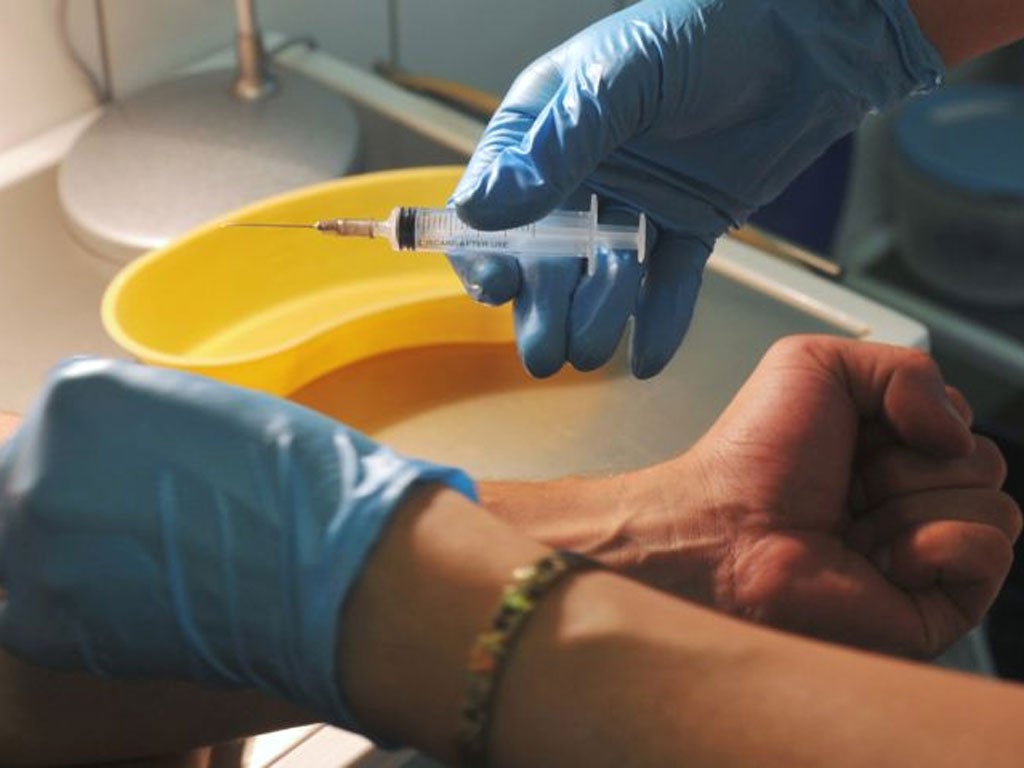One in five people with HIV don't know they have it
UK's top HIV doctor calls for 'earlier and more frequent HIV testing'

Your support helps us to tell the story
From reproductive rights to climate change to Big Tech, The Independent is on the ground when the story is developing. Whether it's investigating the financials of Elon Musk's pro-Trump PAC or producing our latest documentary, 'The A Word', which shines a light on the American women fighting for reproductive rights, we know how important it is to parse out the facts from the messaging.
At such a critical moment in US history, we need reporters on the ground. Your donation allows us to keep sending journalists to speak to both sides of the story.
The Independent is trusted by Americans across the entire political spectrum. And unlike many other quality news outlets, we choose not to lock Americans out of our reporting and analysis with paywalls. We believe quality journalism should be available to everyone, paid for by those who can afford it.
Your support makes all the difference.One in five of people with HIV in the UK don't realise they have the potentially deadly virus, acording to new figures.
Public Health England (PHE) says of the 98,400 people with HIV, there are 21,900 who are unaware of it.
The human immunodeficiendy virus is most commonly caught by having unprotected sex, and can also be passed by sharing infected needles. Its final stage is AIDS, but according to the NHS most people with HIV do not reach that stage.
The newly released numbers are for 2012, and show a slight decrease on the previous year. They also reveal that HIV diagnoses among men having gay sex reached an all-time high, with 3,250 cases in 2012.
Some 47 per cent of the 6,360 people newly-diagnosed with HIV in 2012 were diagnosed at a late stage while the overall number of new cases was up 1 per cent on the previous year.
And 45 per cent of new HIV cases were among heterosexuals, accounting for 2,880 cases.
Gay men remain the group most affected by HIV, followed by black African men and women.
The head of PHE's HIV department, Professor Noel Gill, said: "In the UK, people who are unaware of their infection are likely to be those most at risk of transmitting HIV to others.
"We must increase the speed at which we're reducing the number of undiagnosed HIV infections by encouraging earlier and more frequent HIV testing, especially by those most at-risk."
And Paul Ward, acting chief executive of the Terrence Higgins Trust, said: "Reducing undiagnosed HIV is now the single most important step we can take to halt the spread of infection in this country.
"Some communities are already making headway in this.
"Among gay men, testing rates are up, diagnoses are up, and as a result undiagnosed infection is coming down.
"We've never been in a stronger position to beat the virus, with cutting-edge testing services and free, world-class drug treatments for anyone who tests positive."
Join our commenting forum
Join thought-provoking conversations, follow other Independent readers and see their replies
Comments